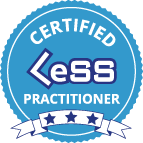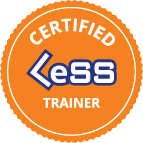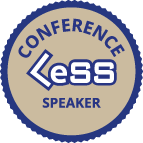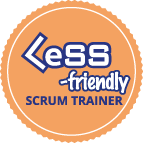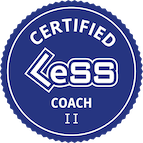Dr. Wolfgang Richter is the founder and CEO of JIPP.IT GmbH, a Competence Center for Agile Software Development. But his passion is to be an Agile Trainer and Coach. He works with Scrum and Agile Methods since 1998, with LeSS since about 2009, and as trainer and coach in technical and methodological topics for more than 20 years. He specializes together with his colleagues in improving processes and structures by using agile methods and principles. Agile Transformations/Adoptions is one of the main activities.
The portfolio of JIPP.IT comprises Software Development, Testing Services, Agile Training, Agile Consulting, and Innovation. The Top-Services provided are the
- Trainings: ACE (Agile Basics, Extended Agile Courses, Certification Courses)
- Agile Adoptions - Coaching, Organisational Change, Integration of Agile Principles and Practices with Scrum and LeSS
- Development and Testing: Business Apps (Java, Android, iOS), Automated Testing Services and Coaching (Mobile, Portals, Backends), and Search Engines (Elastic Search)
Scrum is his preferred method for internal and customer driven projects.
Educational background:
Dr. Richter studied Telecommunications and Informatics at the Technical University Graz where he gained his MSc. He gained his PhD with honours from the University Klagenfurt, where he focused on the Relation between Project Management, Organizational Structures, and Agile Software Development Methods.
His master thesis was about Project Management, Customer Relationship Management, and Virtual Communities. Additionally he conducted studies in Software Development and Economics, and Psychology. He earned his PMP from PMI, a CSM, CSPO, and CSP from the Scrum Alliance, CLP from LeSS.works, CC-I and NLP-P from ICS, and a CIM (Certified Innovation Manager) from a local institute in Austria.
His philosophy is that a combination of theoretical background and practical experience is mandatory for leaders, coaches, and trainers to provide quality.
Professional background:
He participated in over 100 projects, programs and product development endeavours in Europe, Australia, USA, and worked with outsourced teams in China and India. The budget reserved for the largest endeavour was 1,23 billion Euros, with participation of about 2000 people world-wide, including a government. He has been studying and applying agile principles since 1998, and especially Scrum since 1999. Since 2002 he helped many teams and companies to transition from traditional approaches towards agility, especially Scrum. The list of references includes start-ups, local players, and global players.
Additional info (interesting to read):
For his doctoral thesis he conducted a meta-study about the efficiency of methods and combinations of project management standards and software development methods in projects. In this study the results of 50.000 projects were analysed. Some findings are:
Top Software Development Practices most effectively used in projects, sorted by effectiveness:
1.) Iterative Development
2.) Leveraging experience from past projects
3.) Determination of the exact details together with the customer and rating based on certain criteria
4.) Developer tests
Factors influencing software development, sorted by importance:
1.) Good team collaboration
2.) Providing good quality
3.) A motivated team to provide a good end-result
4.) Appropriate and active user involvement, user collaboration and continuous communication with the users
5.) Availability of sufficient qualified employees
Factors influencing project management, sorted by importance:
1.) Executive support, commitment of the top level management and existence of a business goal
2.) Clearly defined business objectives
3.) Delivering on time/having a clearly defined schedule
4.) Availability of sufficient qualified employees
5.) Experienced project manager
6.) Effective controlling
Based on all findings and results, a combination of Goal Directed Project Management (GDPM) together with Scrum and XP seems to be the most promising blend of methods and standards for successful projects. Individually Scrum is the preferred choice.
If you are interested in more findings, historical backgrounds to traditional and agile approaches, or optimization strategies, please contact Dr. Richter directly.


